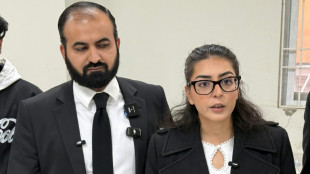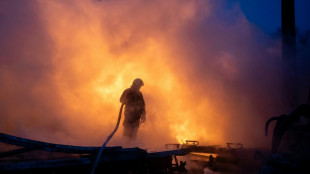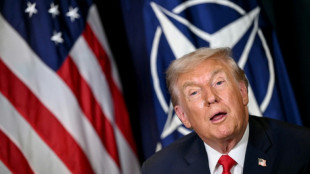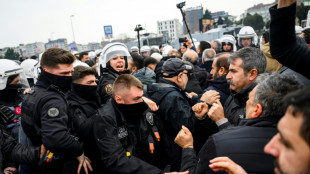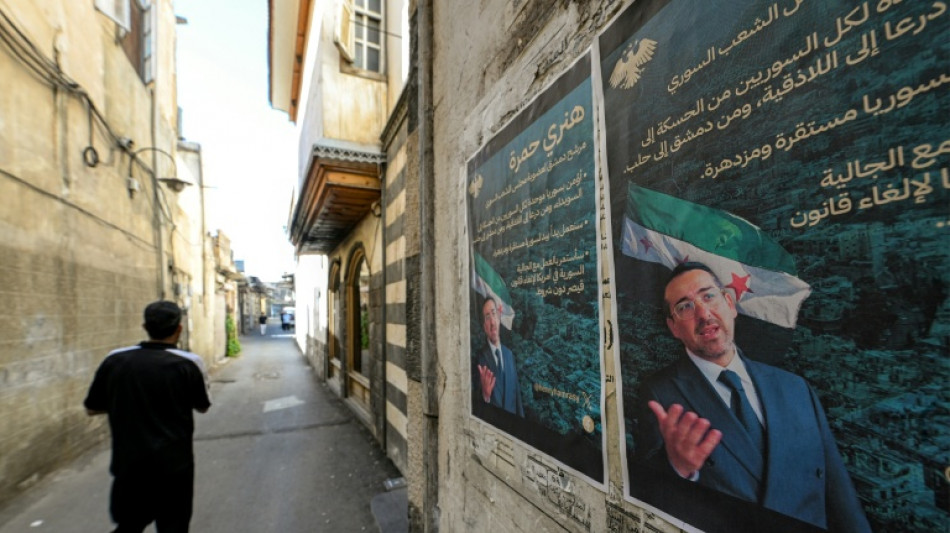

Syria selects members of first post-Assad parliament
Members of local committees in Syria began on Sunday selecting members of a transitional parliament, in a process criticised as undemocratic, with a third of the members appointed directly by interim leader Ahmed al-Sharaa.
The assembly's formation is set to consolidate the power of Sharaa, whose Islamist forces led a coalition that toppled longtime ruler Bashar al-Assad in December after more than 13 years of civil war.
An AFP correspondent witnessed dozens of members of the local committees queueing at Syria's National Library, formerly called the Assad National Library, to cast their vote.
According to the organising committee, more than 1,500 candidates -- just 14 percent of them women -- are running for the assembly, which will have a renewable 30-month mandate.
Sharaa is to appoint 70 representatives out of the 210-member body.
The other two-thirds will be selected by local committees appointed by the electoral commission, which itself was appointed by Sharaa.
But southern Syria's Druze-majority Sweida province, which suffered sectarian bloodshed in July, and the country's Kurdish-held northeast are excluded from the process for now as they are outside Damascus's control, and their 32 seats will remain empty.
"I support the authorities and I'm ready to defend them, but these aren't real elections," said Louay al-Arfi, 77, a retired civil servant sitting with friends at a Damascus cafe.
"It's a necessity in the transitional phase, but we want direct elections" to follow, he told AFP.
The new authorities dissolved Syria's rubber-stamp legislature after taking power.
Under a temporary constitution announced in March, the incoming parliament will exercise legislative functions until a permanent constitution is adopted and new elections are held.
Sharaa has said it would be impossible to organise direct elections now, noting the large number of Syrians who lack documentation after millions fled abroad or were displaced internally during the civil war.
- 'Not elections' -
Around 6,000 people are taking part in Sunday's selection process.
Preliminary results are expected to emerge after it ends, with state television reporting that some centres started counting the votes.
The final list of names is due to be announced on Monday.
Under the rules, candidates must not be "supporters of the former regime" and must not promote secession or partition.
Those running include Syrian-American Henry Hamra, the first Jewish candidate since the 1940s.
"The next parliament faces significant responsibilities, including signing and ratifying international agreements. This will lead Syria into a new phase, and it is a major responsibility," said Hala al-Qudsi, a member of Damascus's electoral committee who is running for a seat herself.
Qudsi was particularly focused on the ongoing negotiations between Syria and Israel, stating that she would "say 'no' to any security agreement with Israel that does not serve the interests of the Syrian people".
In September, Sharaa again voiced hope for a security agreement with Israel, which has kept up attacks on Syria, despite ongoing negotiations between the neighbours.
Rights groups have criticised the selection process, saying it concentrates power in Sharaa's hands and lacks representation for the country's ethnic and religious minorities.
In a joint statement last month, more than a dozen groups said the process means Sharaa "can effectively shape a parliamentary majority composed of individuals he selected or ensured loyalty from".
"You can call the process what you like, but not elections," said Bassam Alahmad, executive director of the France-based Syrians for Truth and Justice, among the groups that signed the statement.
At a meeting in Damascus this week, candidate Mayssa Halwani, 48, said criticism was normal.
"The government is new to power and freedom is new for us," she said.
Nishan Ismail, 40, a teacher in the Kurdish-controlled northeast, said "elections could have been a new political start" after Assad's fall, but "the marginalisation of numerous regions shows that the standards of political participation are not respected".
Negotiations on integrating the Kurds' civil and military institutions into the new central government have stalled, with Damascus rejecting calls for decentralisation.
In southern Syria's Druze-held city of Sweida, activist Burhan Azzam, 48, expressed a similar sentiment.
The authorities "have ended political life" in Syria, he said, adding that the selection process "doesn't respect the basic rules of democracy".
V.Chauhan--MT

